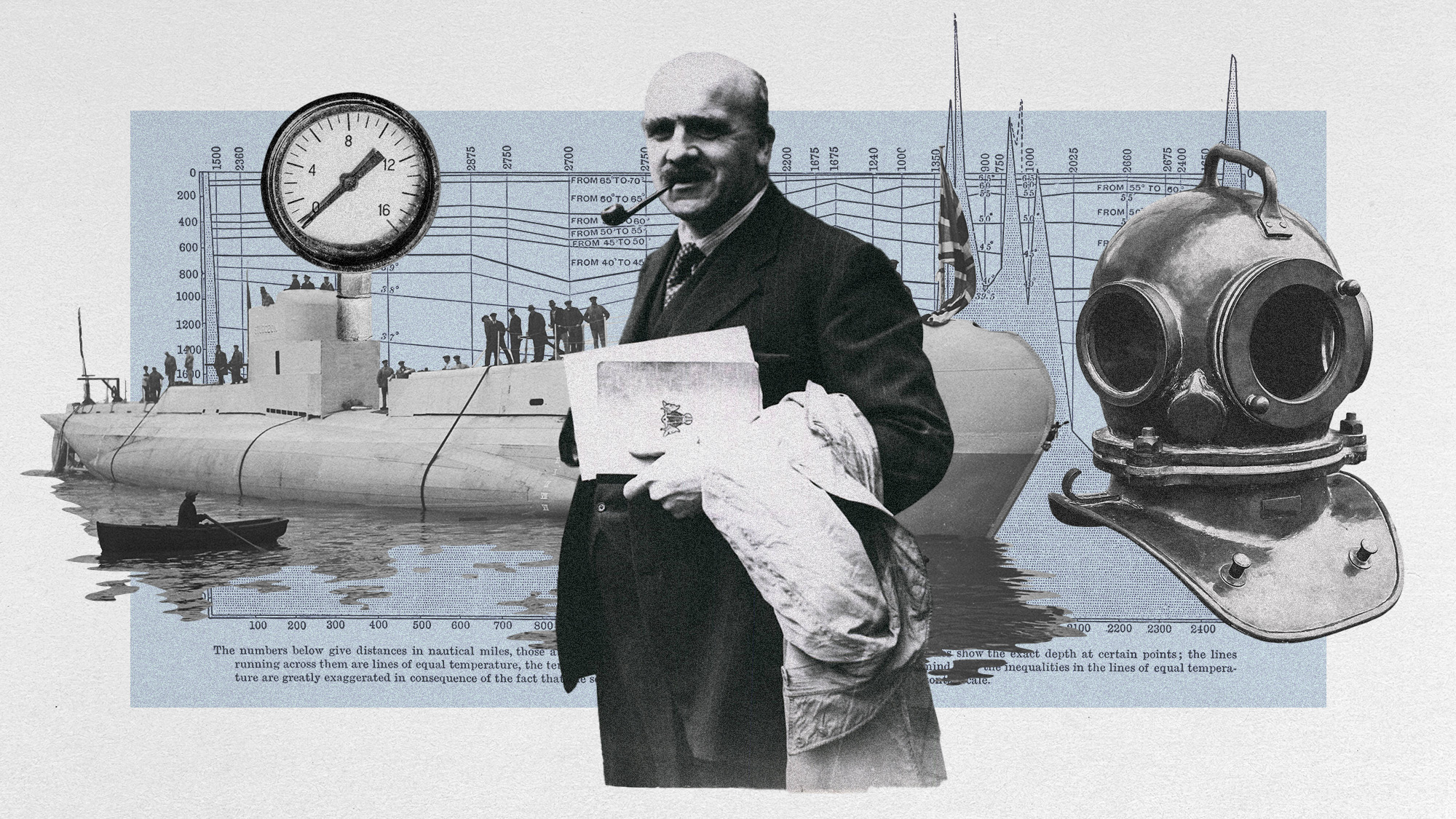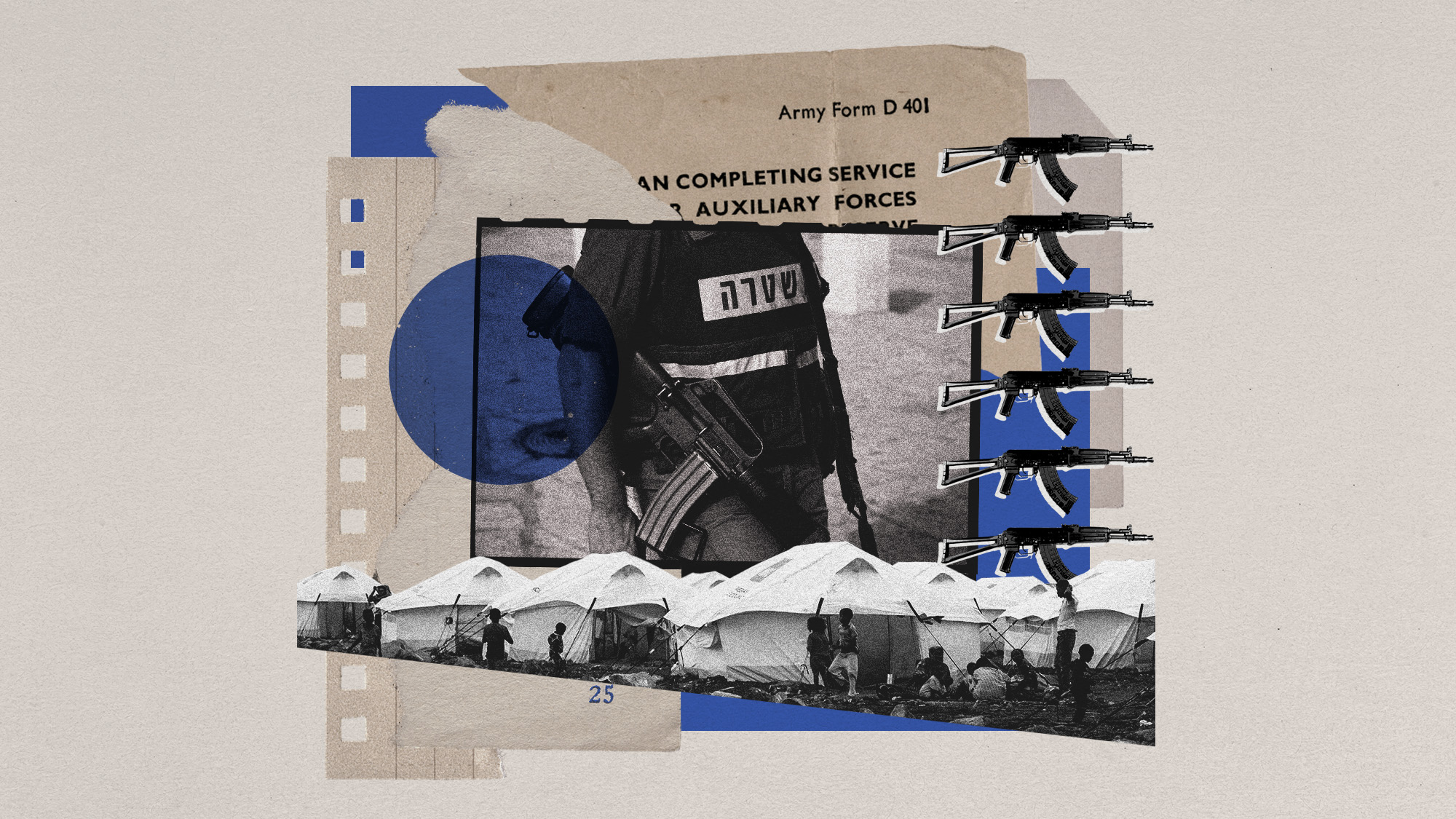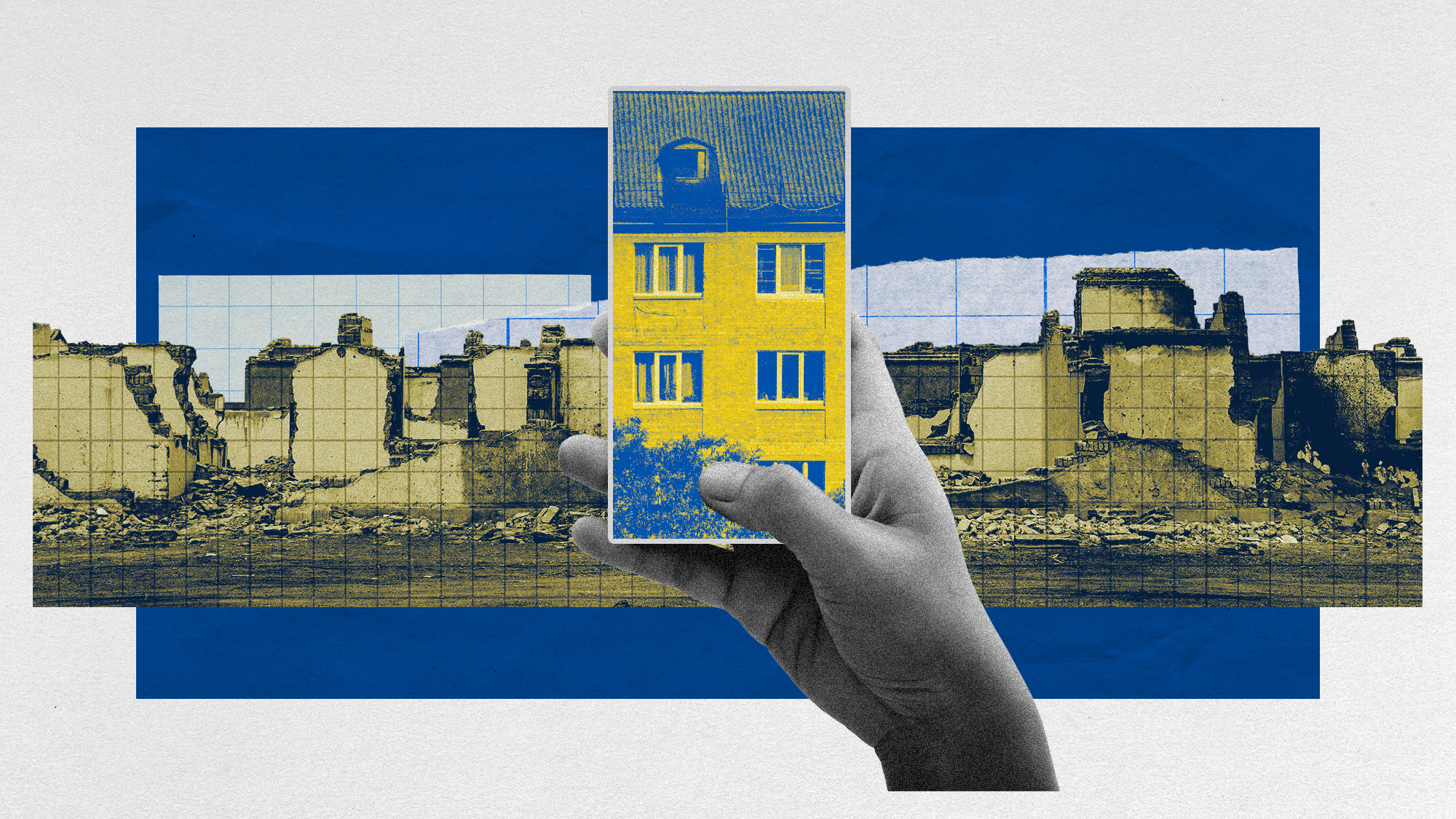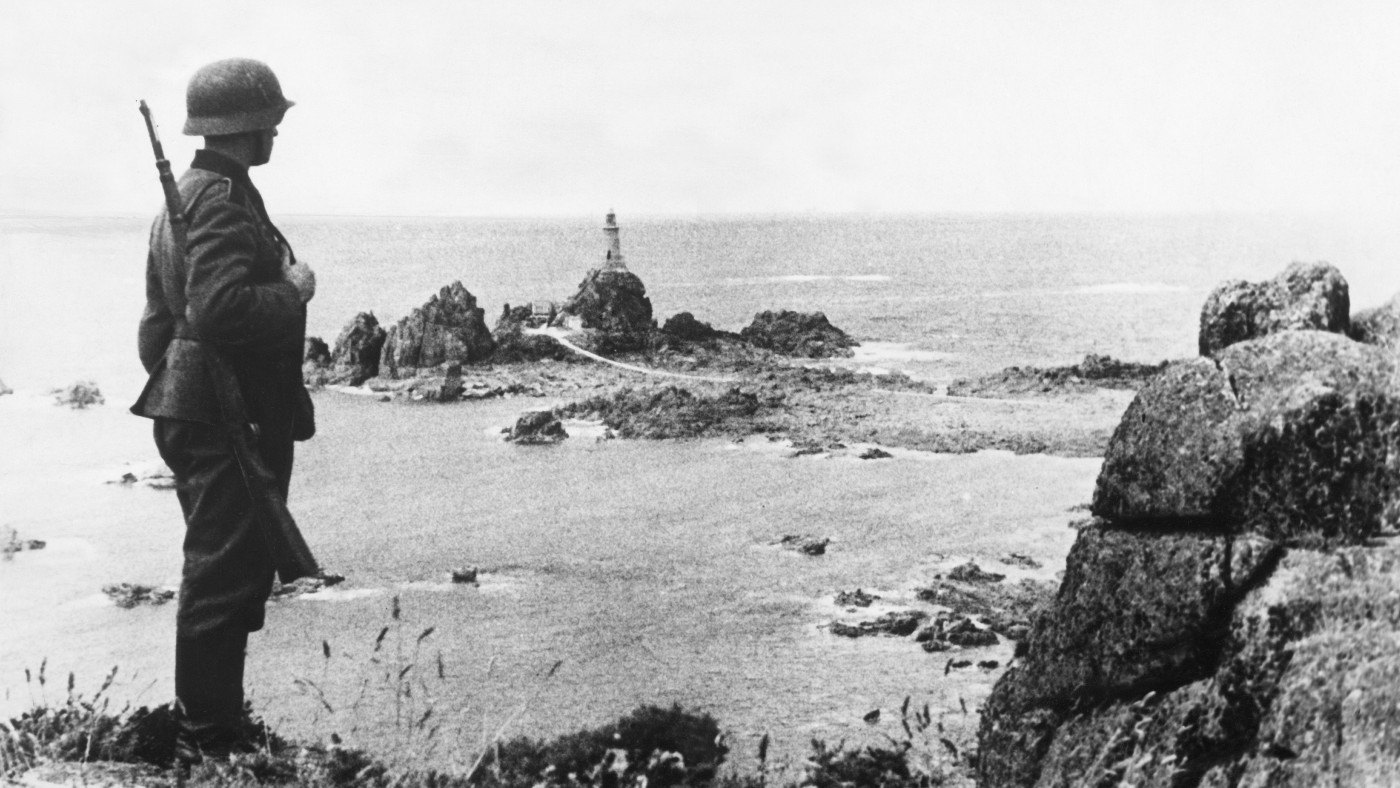The World War Two experiments that made D-Day possible
Scientists performed gruelling tests on themselves paving the way for the iconic invasion

A free daily email with the biggest news stories of the day – and the best features from TheWeek.com
You are now subscribed
Your newsletter sign-up was successful
World War Two was a time of huge sacrifices – including for a team of scientists in London, who conducted hundreds of dangerous experiments on themselves to help divers and submarine crews breathe underwater.
A new book has revealed for the first time how their discoveries would pave the way for D-Day, the largest seaborne invasion in history.
'Like nine glasses of booze'
Rachel Lance's book, "Chamber Divers: The Untold Story of the D-Day Scientists Who Changed Special Operations Forever", details "the many injuries and near-death experiences the researchers endured, from a broken spine to a collapsed lung", said Business Insider.
The Week
Escape your echo chamber. Get the facts behind the news, plus analysis from multiple perspectives.

Sign up for The Week's Free Newsletters
From our morning news briefing to a weekly Good News Newsletter, get the best of The Week delivered directly to your inbox.
From our morning news briefing to a weekly Good News Newsletter, get the best of The Week delivered directly to your inbox.
John Burdon Sanderson Haldane, from the genetics department at University College London, and members of his lab became "guinea pigs", conducting experiments in hyperbaric chambers, said the website.
They had been tasked with the job after a Royal Navy submarine sank during a dive test in 1939, killing 99 people whose breathing apparatus failed to save them.
It was gruelling research: they breathed different levels of carbon dioxide and oxygen to see how their bodies responded at different levels of pressure. CO2 gave them headaches and caused them to hyperventilate, but pure oxygen also led to violent seizures, vomiting and impaired vision.
Confining themselves into a small tube, Haldane and a colleague would also breathe in regular air, with its 78% nitrogen, to see if it affected their ability to answer maths question. "In short," said Lance in the Smithsonian, "they would see if nitrogen got them properly drunk."
A free daily email with the biggest news stories of the day – and the best features from TheWeek.com
They found it had the same impact as "imbibing nine glasses of straight booze", in "less time than it might have taken to drink the actual liquid".
Intoxication wasn't the only side effect of their work. During the 611 experiments they carried out, there were injuries: Haldane injured his back during a seizure, and one of his team dislocated her jaw. There was also a broken spine to a collapsed lung.
This was not the stuff of health and safety. "They put themselves in there for things that would not be legal today", Lance told NPR. "If I tried to do that, even if I had subjects who consented, I would possibly be criminally prosecuted."
Their pain and experimentation paid off: eventually, the team mixed oxygen and regular air to find a perfect blend that would allow divers and submarine crews to breathe without side effects.
Although the "groundbreaking research" was "buried under classification markings for generations", said Wired, their work and the pain involved are now available for all to see.
D-Day success
The discoveries were crucial for the success of one of British history's most significant hours. Ahead of D-Day, British teams would go over to Normandy and "sink down to the bottom during the day, breathe inside their safe, enclosed environment" and then "come up at night, crawl ashore, measure the sand, measure the beach angles, provide detailed maps, everything, and then go home", Lance told NPR.
This, and the success of D-Day itself, was thanks in part to the work of Haldane and his colleagues. Their dangerous experiments not only contributed to the famous invasion, said Business Insider, but also "contributed to the science behind modern-day scuba diving".
Chas Newkey-Burden has been part of The Week Digital team for more than a decade and a journalist for 25 years, starting out on the irreverent football weekly 90 Minutes, before moving to lifestyle magazines Loaded and Attitude. He was a columnist for The Big Issue and landed a world exclusive with David Beckham that became the weekly magazine’s bestselling issue. He now writes regularly for The Guardian, The Telegraph, The Independent, Metro, FourFourTwo and the i new site. He is also the author of a number of non-fiction books.
-
 How the FCC’s ‘equal time’ rule works
How the FCC’s ‘equal time’ rule worksIn the Spotlight The law is at the heart of the Colbert-CBS conflict
-
 What is the endgame in the DHS shutdown?
What is the endgame in the DHS shutdown?Today’s Big Question Democrats want to rein in ICE’s immigration crackdown
-
 ‘Poor time management isn’t just an inconvenience’
‘Poor time management isn’t just an inconvenience’Instant Opinion Opinion, comment and editorials of the day
-
 Experts call for a Nato bank to 'Trump-proof' military spending
Experts call for a Nato bank to 'Trump-proof' military spendingUnder The Radar A new lender could aid co-operation and save millions of pounds, say think tanks
-
 The African asylum seekers fighting for Israel in Gaza
The African asylum seekers fighting for Israel in GazaUnder the Radar 'Quid pro quo' recruitment offer condemned as unethical as Israel seeks to address shortage of soldiers
-
 Atesh: the Ukrainian partisans taking on Russia
Atesh: the Ukrainian partisans taking on RussiaUnder The Radar Underground resistance fighters are risking their lives to defend their country
-
 Welsh radar site to 'protect Britain from deep space warfare'
Welsh radar site to 'protect Britain from deep space warfare'Under The Radar Government says site will be 'vital' for defence but opponents say it puts Wales in danger
-
 Ukraine's stolen children
Ukraine's stolen childrenUnder the Radar Officially 20,000 children have been detained since Russia's invasion in 2022, but the true number is likely to be far higher
-
 Ukraine's unconventional approach to reconstruction
Ukraine's unconventional approach to reconstructionUnder the radar Digitally savvy nation uses popular app to file compensation claims, access funds and rebuild destroyed homes
-
 Growing turmoil in resource-rich Democratic Republic of Congo
Growing turmoil in resource-rich Democratic Republic of CongoUnder the Radar South African troops help army battle rebel groups in the world's leading cobalt producing country
-
 Alderney and the inquiry into Nazi camps on British soil
Alderney and the inquiry into Nazi camps on British soilfeature An official government review will attempt to establish how many people were killed on the Channel Island